What The Future Of Singapore Real Estate Could Look Like: 6 Exciting Predictions
June 27, 2022
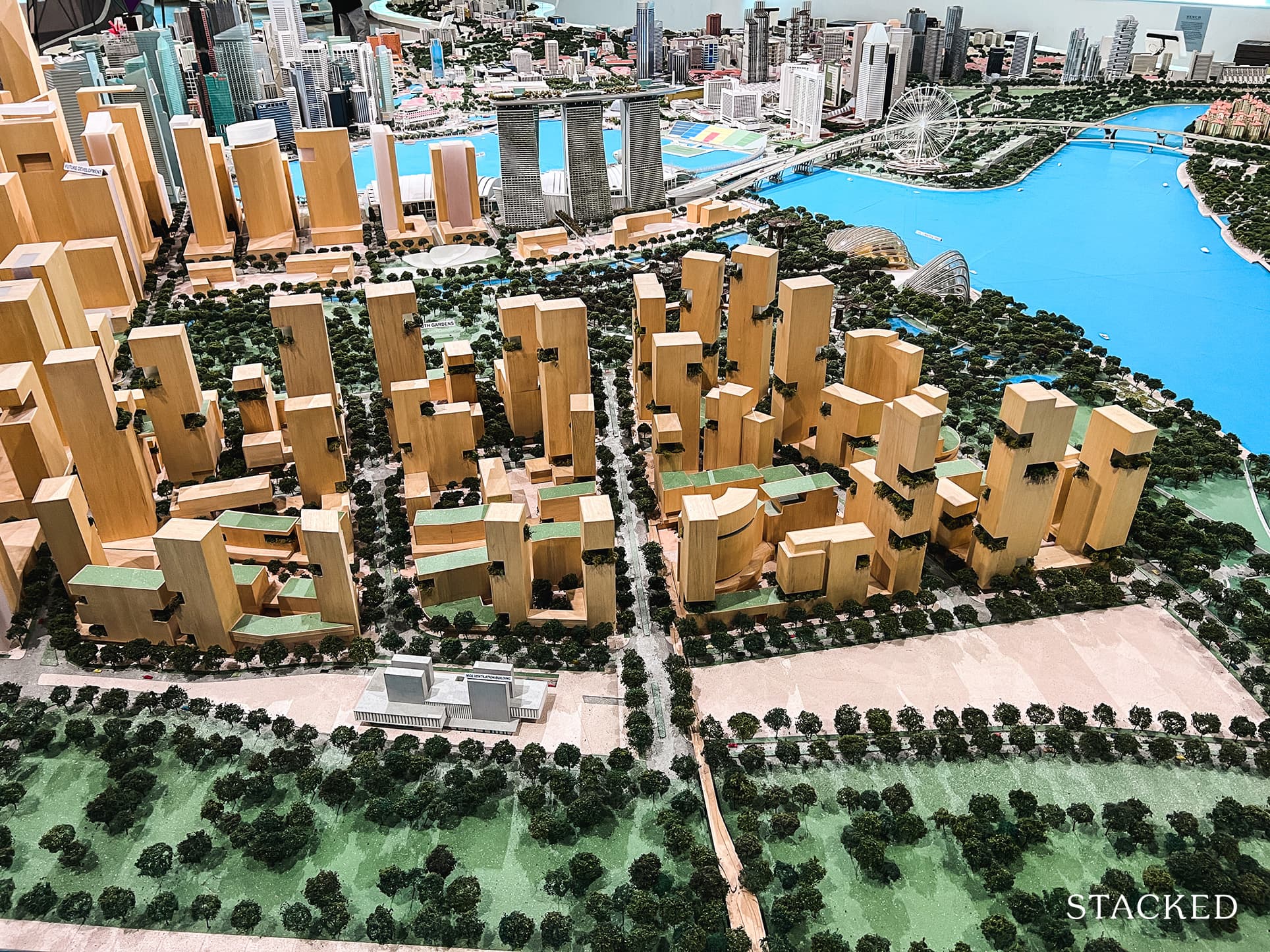
Let’s imagine for a second that you are in art class and the teacher gave you this description to create:
“A medieval painting of the wifi not working”
How would you go about drawing that?
As crazy as it might sound, AI can do that today, at a seriously mind-boggling level.

Just incredible, isn’t it?
How about, “a head of broccoli complaining about the weather”

It is just incredibly apt.
I have to admit when I first heard about this from this Twitter thread – I was seriously mind blown.
It’s a real breakthrough of AI tech that might very well alter every single industry out there.
Basically, DALL·E 2 is a new AI system that can create realistic images and art just from text descriptions. Using a text prompt, the system can immediately conjure up renders of designs that have never been seen before. Better yet, it can combine words that have totally no relation to each other, which in the examples above is just totally up to your creativity.
It can also control the viewpoint and its 3D style. This software is the brainchild of OpenAI, which is backed by the tech giant, Microsoft. Of course, Google also has its own version of a similar AI system called Imagen.

With total investment into AI reaching $77.5 billion in 2021, it will have an impact on the real estate market as well.
Today, real estate companies are already using it to help home buyers find a mortgage or even the perfect home.
With AI, it can use data that it has collected from millions of homebuyers who have been searching online. Just like how TikTok can show you videos that will interest you the most from your browsing habits, AI can assess and predict what properties would most interest you. For example, it can show you the right property based on a specific search term like “HDB with a balcony” and perhaps even suggest alternative places that they know from previous search data that others with the same search parameters have liked.
So just like how you would use a property agent today, an AI can help you surface properties that you might not even know about.
Conversational AI has also reached a stage today where you’ll be hard-pressed to tell that you are actually talking to a “robot”. The advantages are multi-fold here. Unlike human real estate agents, you can talk to a bot 24/7. It’s also like conversing with a normal person, with search terms that you can use that you can’t search for on a traditional web portal.
For example, when searching for a home that has a kitchen fitted out for a professional chef, AI chatbot Text Luke will use its image-recognition program to find which listings meet that criteria.

And here’s the scary part (for property agents at least), the system gets smarter and smarter as it is always improving the more searches are carried out on it.
But before you think this piece is just about AI in real estate, it got me to really think about how technology can and will impact the real estate market in the future in Singapore.
So here are 6 ways that I think will be part of the future of real estate in Singapore.
Table Of Contents
- 1. Branded Residences Catered For Our Older Generation
- 2. New and Improved Materials for Future Buildings
- 3. No Security Guards and Robot Cleaners
- 4. Improved Construction Technology
- 5. A Convergence between the Metaverse and Physical Real Estate
- 6. Rise of Electric Cars & Lower Demand for Car Park Spaces
- Final Thoughts
So many readers write in because they're unsure what to do next, and don't know who to trust.
If this sounds familiar, we offer structured 1-to-1 consultations where we walk through your finances, goals, and market options objectively.
No obligation. Just clarity.
Learn more here.
1. Branded Residences Catered For Our Older Generation
Looking at this 2021 report by Singstat, Singapore’s median age has been a constant rise ever since 1970 and is at its highest age yet – 41.8 years old.

To cater to this ageing market, I think that there could be more branded residences to provide all-in-one services that could be a trend as the population ages and is naturally more affluent as well. Bangkok has already launched this new form of home ownership concept through The Aspen Tree Residences. It combines home with a lifetime provision of first-class healthcare and wellness services.
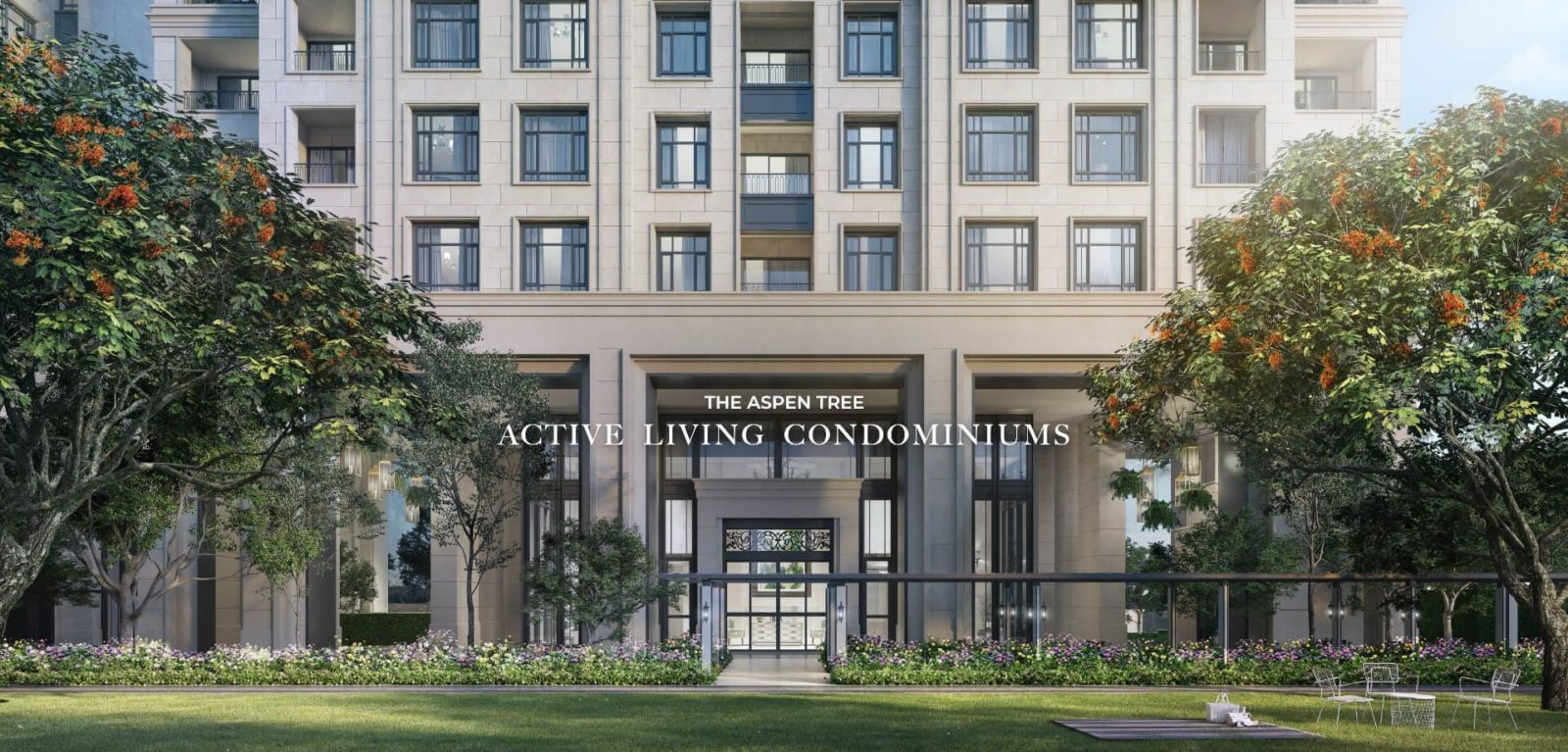
It ties in really nicely with Singapore’s vision of creating a 3-Generation home and in this case, it provides a very tailored lifestyle to different generations within a convenient reach. The quality of these homes can also be top-tiered, seeing how the affordability index in Singapore has risen drastically over the years.
Of course, this will also affect the monthly costs payable, but if it solves the age-support issue moving forward, I do think it’s worth a shot.
2. New and Improved Materials for Future Buildings
No stone is left unturned – even our materials are evolving. There is also now such a thing as self-healing materials, which can have the ability to strengthen, grow and even repair themselves using something abundant in the atmosphere – carbon dioxide! That’s kind of like a plant isn’t it? Science is truly amazing.
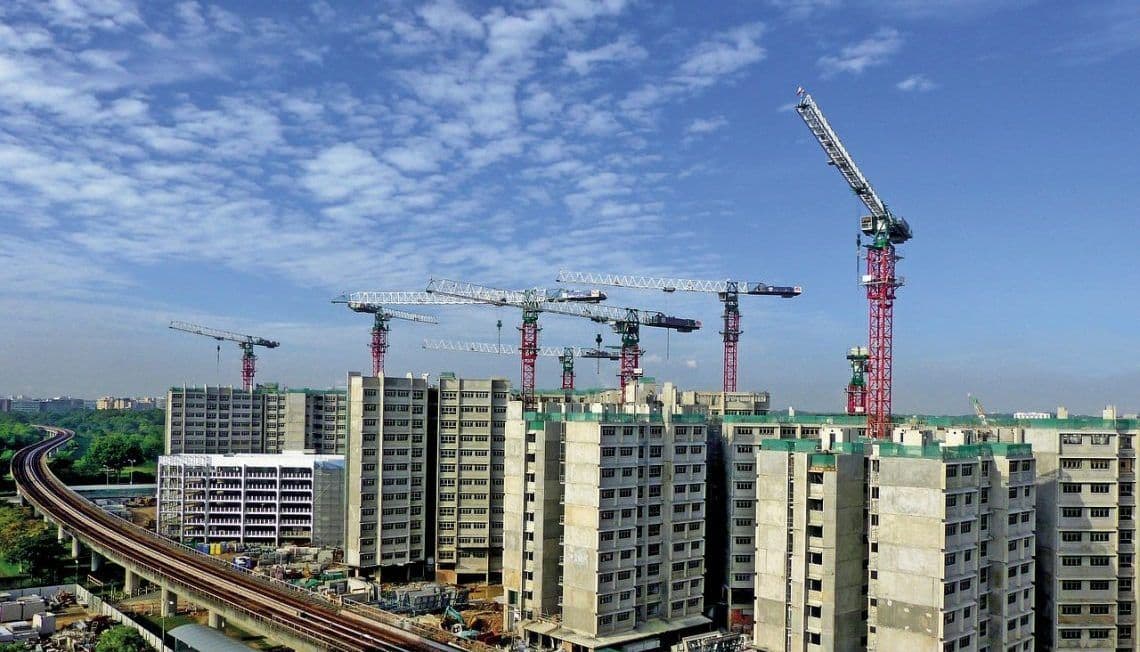
Building maintenance has been a necessary but time-consuming and costly work, and using this material could drastically increase the durability and lifespan of our buildings, which saves on labour costs and time and not to mention, the environmental benefits.
It removes the CO2 from our environment (a solution to a lesser carbon footprint) and doesn’t require fossil fuels to make. I’m not sure about its scalability, but can you imagine having a building that repairs itself? Let’s hope this becomes a reality in the future.
If you want to read more of this new material, this link will be helpful.
3. No Security Guards and Robot Cleaners
With the use of AI, security can come in the form of speaking to a camera at the gantry of a condominium. By allowing the camera to register the car plate number and driver’s face, you can simply drive into the development without going through the usual checks from a human security guard.
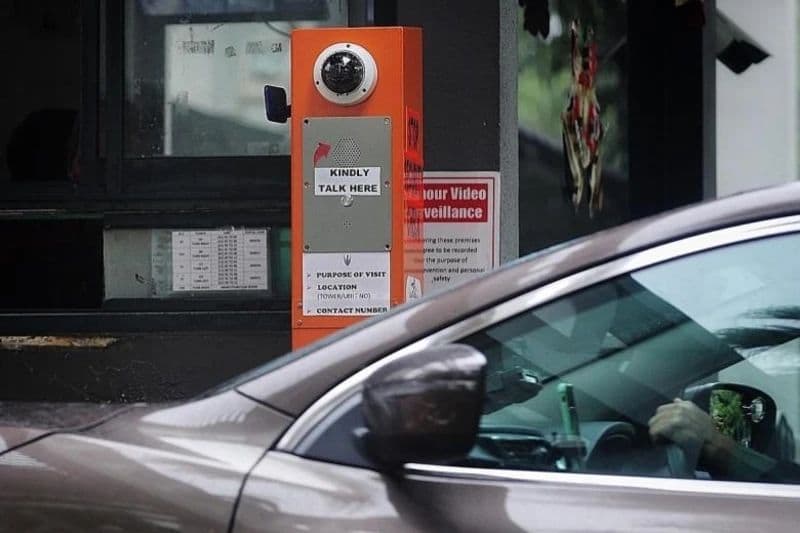
Although this can save up on manpower costs, I can see why a mass implementation of this might be an issue to Singapore’s employment in the future. That being said, condominiums in Singapore have already started to implement this technology, with many new launches already touting such a benefit.
More from Stacked
Pros and Cons of Buying Property in Phase Two
It’s pretty amazing how long – and how quick – the months of the Circuit Breaker (CB) have passed. A…
With the number of Google reviews complaining about rude security guards in Singapore, I can imagine this to be widely adopted once the technology proves to be one that is easy to use and is compliant.

Likewise, using such technology can come in the form of maintenance of the condo. I’m sure most of you would have already seen many of these cleaning robots around Singapore – Changi Jewel, shopping malls and other public spaces. Using AI, these robots can be implemented in our residential spaces so that it can use data to predict its supply and demand throughout the day.
I’ve seen the one at the URA space even whistling a tune as it was going about cleaning the floor, so there is the added benefit of some entertainment as you walk by!
4. Improved Construction Technology
Singapore is all about efficiency and safety. And with the demand for housing on our island, construction technology would have to improve too.
We’ve already seen the efficiency of the Prefinished Prefabricated Volumetric Construction (PPVC) model, which has reduced construction timing by 30 – 50%. It also ensures more consistent quality and a much safer and controlled process due to its fabrication being off-site.

Not just that, AI, Virtual Reality (VR) and Augmented Reality (AR) technology used right could be a total game-changer for the construction industry. Now, these systems have the potential to deliver projects way ahead of schedule, reduce any dangers and risks, and improve profit margins.
There is a lot to talk about here (it can go into another whole piece by itself). But in short, AI in construction technology can be used to improve many of the processes involved. From assisting in the design review process to predictive analytics based on real-time data generated by construction work wearables – there’s a ton to improve when it comes to the construction industry.
5. A Convergence between the Metaverse and Physical Real Estate
The virtual world holds a lot of potential for physical real estate ever since the pandemic has intensified our relationship with technology.
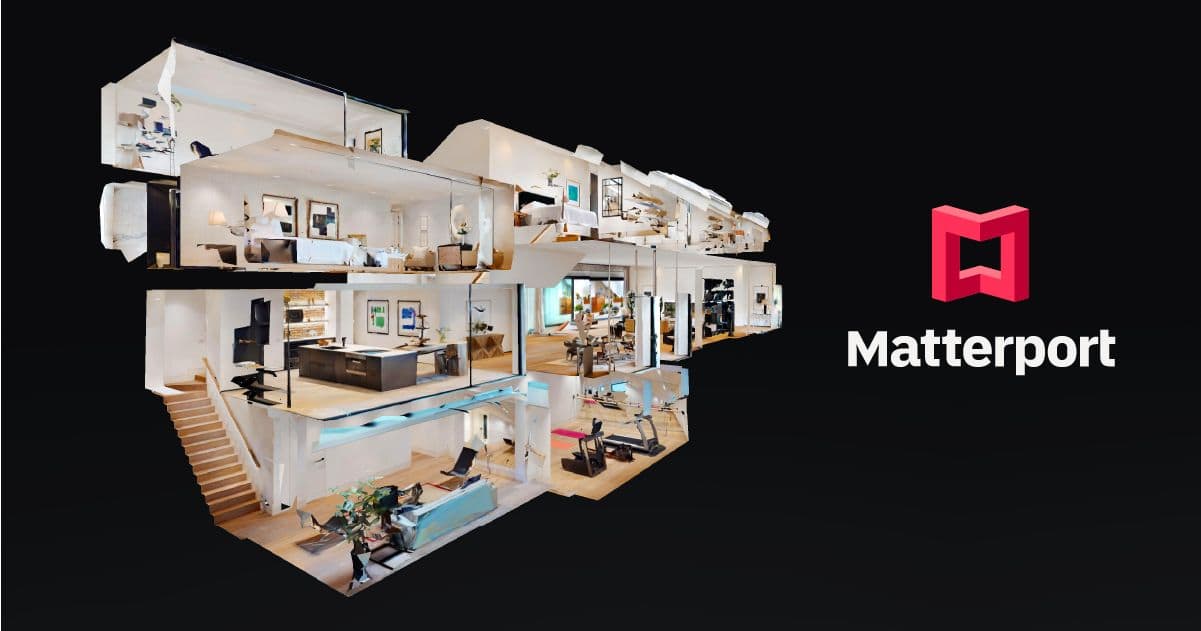
One major appeal is that show flats can be done online virtually while having wider reach and lesser costs (for the developers, of course). The Matterport has been essential in showing 3D renders of a unit’s layout and I can see how that can be adapted for long-term, future use. Everything would be more virtual and a reduction in the need for physical face-to-face.
Show flats are a big marketing cost for a developer. Each can cost a couple of million easily to construct, and renting the land monthly can be a significant chunk of change as well. There’s also the advantage of less pollution to the environment from the building and tearing down of one in a matter of a few months (when it sells out fast).
It’s a matter of monkey see monkey do here in Singapore. I’d imagine once the first brave developer to prove that you can sell a whole project completely through just a virtual show flat is successful, it wouldn’t take long before the rest will follow suit.
6. Rise of Electric Cars & Lower Demand for Car Park Spaces
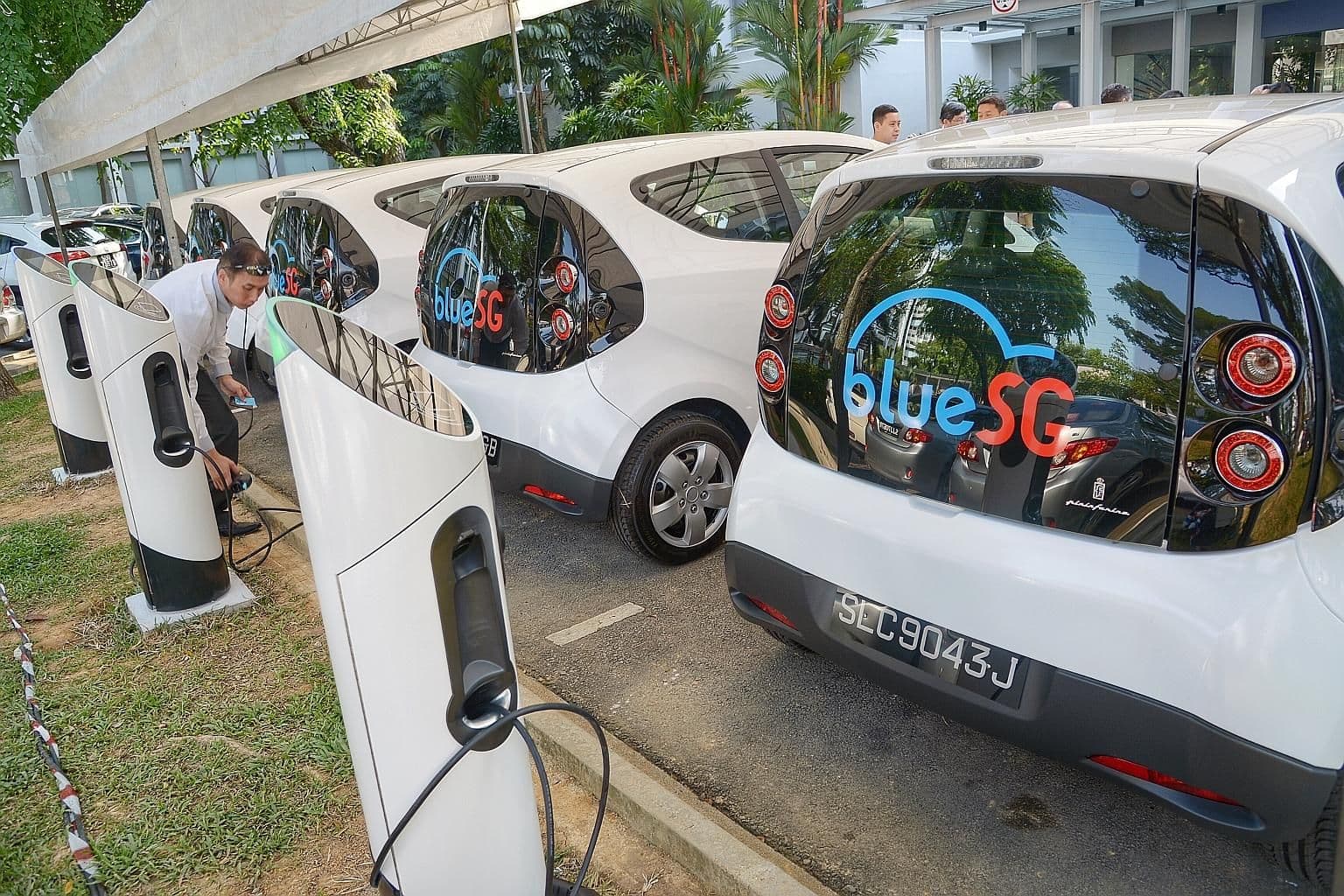
One observation that I’ve made was that there have been more blueSG stations and Getgo stations popping across our island. And this is because carsharing has now become a very common sight in Singapore.
I’d suppose that this new trend will eliminate the need for a car among many and can become an on-demand service. This could also reduce the need for parking spaces across neighbourhoods and more carsharing points.
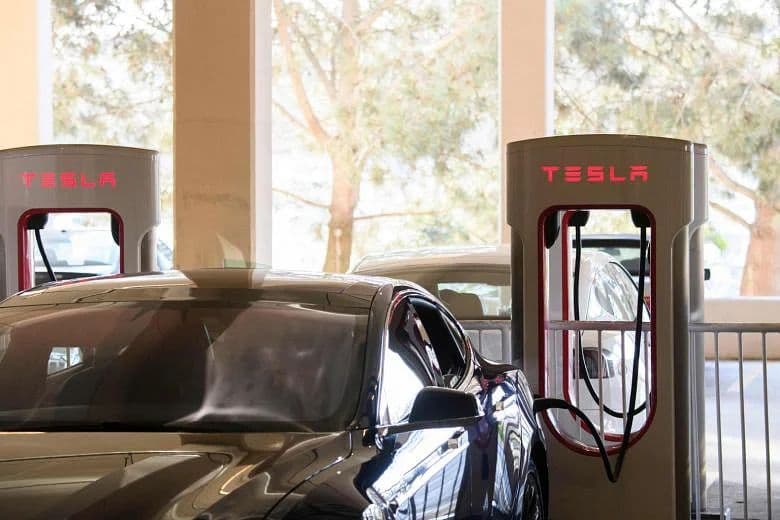
For those who need a car, the push for electric cars is also more prevalent. You can see many supercharging stations throughout public spaces and I personally sighted many more electric cars on the road nowadays. That’ll contribute to our efforts to protect the environment as we now shift more towards using electricity rather than fossil fuels.
I do also believe car companies may transition to becoming transport companies in the future too. Imagine each car brand being a subscription that you pay for monthly. So as self-driving cars become a reality, it is entirely possible that you can pay a monthly fee and have self-driving transport that picks you to and from work each day – at a monthly fee that is much more reasonable than owning a car. Want to get to work in a premium brand? It’s just about paying a higher monthly subscription each month.
With such services in the future, condominiums will have less need for car park lots. These spaces could also be revitalised to be used for more social activities in the future. Think about all the current car park spaces in Singapore that could be used for more important uses (open-car park lots, HDB multi-storey car parks). In a country where land is a premium, this shift in transport will be a huge one as well.
Final Thoughts
As our city adapts to the technological revolutions around us, I find it a blessing that Singapore is always forward-thinking. We’re always thinking of how to improve our quality of life and that allowed us to become a model for many other cities in the world.
I personally look forward to many of these new implementations, but I don’t expect all problems to be solved. In fact, I wonder what problems would our island face in the next 10 years.
Let me know what your thoughts are on these technological breakthroughs, or if there are any others that I may have missed out on. Till the next one!
At Stacked, we like to look beyond the headlines and surface-level numbers, and focus on how things play out in the real world.
If you’d like to discuss how this applies to your own circumstances, you can reach out for a one-to-one consultation here.
And if you simply have a question or want to share a thought, feel free to write to us at stories@stackedhomes.com — we read every message.
Frequently asked questions
How might Singapore's real estate market change with the use of AI technology?
What future housing options could cater to Singapore's aging population?
How will construction technology evolve in Singapore's real estate development?
What role will virtual reality play in Singapore's property marketing and sales?
How is the shift to electric cars expected to impact parking needs in Singapore?
Cheryl Teo
Cheryl has been writing about international property investments for the past two years since she has graduated from NUS with a bachelors in Real Estate. As an avid investor herself, she mainly invests in cryptocurrency and stocks, with goals to include real estate, virtual and physical, into her portfolio in the future. Her aim as a writer at Stacked is to guide readers when it comes to real estate investments through her insights.Need help with a property decision?
Speak to our team →Read next from Property Market Commentary

Property Market Commentary How I’d Invest $12 Million On Property If I Won The 2026 Toto Hongbao Draw

Property Market Commentary We Review 7 Of The June 2026 BTO Launch Sites – Which Is The Best Option For You?

Property Market Commentary Why Some Old HDB Flats Hold Value Longer Than Others

Property Market Commentary We Analysed HDB Price Growth — Here’s When Lease Decay Actually Hits (By Estate)
Latest Posts

Property Investment Insights This 55-Acre English Estate Owned By A Rolling Stones Legend Is On Sale — For Less Than You Might Expect

Singapore Property News I’m Retired And Own A Freehold Condo — Should I Downgrade To An HDB Flat?

New Launch Condo Reviews What $1.8M Buys You In Phuket Today — Inside A New Beachfront Development






































0 Comments